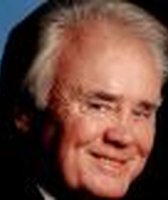Stand up for the facts!
Our only agenda is to publish the truth so you can be an informed participant in democracy.
We need your help.
I would like to contribute
SUMMARY: The top Democratic contenders opened up a PR rift to distinguish themselves from one another on how to deal with Iran, but behind the rhetoric they don't really disagree.
Sen. Barack Obama's campaign says Sen. Hillary Clinton's recent vote on Iran gives President Bush "a blank check" to go to war.
The Clinton campaign responds by calling Obama a flip-flopper, saying he last year supported a U.S. military force in Iraq to deter Iran, but is now opposed because he is "struggling to revive his once-buoyant campaign."
The dustup between the two Democratic candidates suggests a sharp difference on U.S. policy with Iran. But clear away the smoke and look beyond the attacks and you'll find they don't differ that much. Both say Iran's Revolutionary Guard supports terrorism. Both want more diplomacy and tougher sanctions to deter Iran's nuclear program. And neither is ready to give Bush authority to go to war.
"I don't want to give this president any excuse, any opening for war," said Obama.
Sign up for PolitiFact texts
"If the administration believes that any use of force against Iran is necessary, the president must come to Congress to seek that authority," said Clinton.
But they disagree on one issue — an amendment that declared the Revolutionary Guard to be a terrorist organization.
Clinton supported it. Obama missed the vote — he was campaigning in New Hampshire — but says he would have opposed it.
"As we learned with the authorization of the Iraq War -- when you give this President a blank check, you can't be surprised when he cashes it," Obama said.
Obama spokesman Bill Burton was even stronger, criticizing Clinton for supporting the amendment. "Senator Clinton supported giving President Bush both the benefit of the doubt and a blank check on a critical foreign policy issue," Burton said in a statement to reporters.
But it's a stretch to call the Iran amendment a "blank check," a phrase defined in the dictionary as "permission to use an unlimited amount of money, authority, etc."
They are referring to an amendment to a defense bill authored by Sens. Jon Kyl,R-Ariz., and Joe Lieberman, I-Conn., that declared Iran's Revolutionary Guard a terrorist organization. Clinton and other Democrats initially balked at the amendment because they believed it sounded like an authorization of war. But after two paragraphs were removed, the amendment passed 76-22 on Sept. 26.
Obama and other Democrats have tried to use Clinton's vote to portray her as careless on Iran and remind voters she backed President Bush's request to go to war with Iraq. Obama advisers say the Kyl-Lieberman amendment provides a new rationale for keeping U.S. troops in Iraq and could be used to justify an attack on Iran.
"Without a doubt," Obama adviser Greg Craig said in a memo, "President Bush can cite that language as authorizing him to maintain and use U.S. troops in Iraq for the purpose of containing Iran, curtailing Iran's influence in Iraq, and, if need be, to expand our troops' activities beyond Iraq's borders to pursue and attack Iranian forces."
Sen. Joe Biden made that argument forcefully in a statement after the vote, arguing that the Bush administration has interpreted laws in ways Congress did not intend. "I don't trust this administration not to twist its words into a justification for war," Biden said. "I don't trust this administration to follow the plain meaning of the law."
But Clinton emphasized that the amendment was "non-binding" and that it "in no way authorizes or sanctions military action against Iran."
So which side is right?
Some foreign policy analysts — and a senator who supports Obama — say it's an exaggeration to call the amendment a "blank check."
"It's non-binding, so it has no policy implications, let alone legal implications," said Michael A. Ledeen, a scholar at the American Enterprise Institute, a conservative think tank. "It's posturing."
Sen. Richard Durbin, an Illinois Democrat supporting Obama, told Bloomberg Television that the resolution does not give authority "to invade Iran or any other country ... I have the same concerns that Barack Obama does about this administration and what they might do with the power that they have. But I don't think this resolution gives them a green light to do anything."
But other analysts say that while the legislation may not appear to be a blank check, the Bush administration may try to use it that way.
"I think it's sort of a stretch, but this administration has been known to make that stretch previously," said Max Bergmann, deputy director of the National Security Network, a left-leaning group that studies national security. "It's getting into an area where Congress and our country have been burned before."
Given the differing interpretations, we rate the "blank check" claim to be Half True.
But other than their disagreement on the resolution, Obama and Clinton don't differ much on Iran.
"We're not talking about big distinctions," said political analyst Stuart Rothenberg. "It's all about symbolism - who is the toughest one taking on Bush, who is the angriest?"
Our Sources
AFP, Iran sanctions rattle 2008 White House hopefuls, Oct. 26, 2007.
Barack Obama, Remarks of Senator Barack Obama: Lessons from Iraq, Oct. 12, 2007.
Congressional Record, the Kyl-Lieberman Amendment, Sept. 26, 2007. Paragraphs b(3) and b(4) were deleted before the final vote.
Roll call vote on the Kyl-Lieberman Amendment, Sept. 26, 2007.
A bill to impose sanctions on Iran and on other countries for assisting Iran in developing a nuclear program, and for other purposes, co-sponsored by Barack Obama on April 24, 2007, and by Hillary Clinton on April 26, 3007.
Hillary Clinton campaign, Memo: Obama vs. Obama: The Real Differences on Iran, Oct. 25, 2007.
Barack Obama, A Way Forward in Iraq, speech given to the Chicago Council on Global Affairs, Nov. 20, 2006.
Roll call vote on the Kyl-LiebermanAmendment, Sept. 26, 2007.
The Jerusalem Post, How would you grapple with Iran's nuclear drive?, June 7, 2007.
Interviews: Michael Ledeen, American Enterprise Institute; Max Bergmann, deputy director of the National Security Network; Stuart Rothenberg, Rothenberg Political Report.


















































